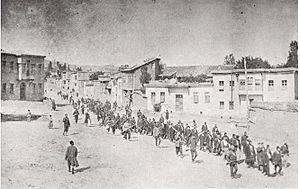
The United States military killed the leader of ISIS, Al-Baghdadi on Oct. 27, and no-one knows what will happen to the terrorist sect.
President Trump, said, “The United States has killed the number one terrorist in the world.” Trump also added, “this is bigger than killing Osama Bin Laden.” Bin Laden, the leader of the Taliban, was killed in 2011.
US News reported the killing of Baghdadi serves as an essential component to defeating the Islamic State group and their future is uncertain. It is this uncertain future that remains unsettling Americans and Europeans. “I think it’s cool that we killed ISIS’s leader,” senior Bradley Hamilton commented. “However, there’s still going to be ISIS.”
This sentiment is echoed by senior Brenna Morley. “We can kill the leader but if nothing more is done they are just going to keep killing people,” she said.
With no future plans to deal with ISIS revealed to the public. The United States continues to celebrate this “major blow against ISIS” as said by President Trump while more trouble involving ISIS may be at play. According to US news, the primary issue being a possible merging of ISIS and terrorist group Al-Qaeda due to a loss of leadership in ISIS. Al- Qaeda has been expanding their territory in the Middle East and Africa and is in a good position to take over their former enemy.
Bruce Hoffman, a terrorism analyst and frequent adviser to intelligence services wrote, “With no clear ISIS heir apparent, a voluntary merger with Qaida or absorption of remaining ISIS is plausible.”
However, this crisis may be averted because ISIS has released a video claiming to have selected a new leader. If this is true, the organizations would remain separate and refrain from becoming more powerful. Nevertheless, ISIS with a new leader doesn’t fix the issue that killing Al-Baghdadi was supposed to solve. An attack on the United States directly by ISIS or an attack inspired by ISIS remains a danger to all U.S citizens, and the faster the organization is fully dealt with, the better.









